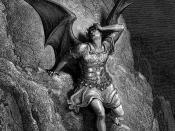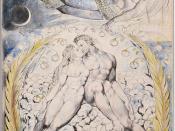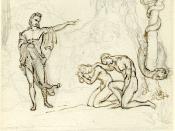Included a comparative analysis of Genesis (Chapters 1-3) and Milton's Paradise Lost (Book I and II) using the passage provided as the basis for your comparison.
The book of Genesis (Chapters 1-3) tells the biblical story of creation, the story behind Adam & Eve and how their defiance of God led their banishment from the Garden of Eden. Paradise Lost (1667) is an epic poem that follows the creation of the world, revises the temptation of Adam and Eve by Satan and follows their expulsion from the Garden of Eden. Genesis and Paradise Lost have similar ideological belief, language and concept. There are also factors that set them apart, such as Paradise Lost being in a different style of writing, different types of recount and the fact that Paradise Lost is based on Genesis which results in changed belief over time. There are also flaws that exist when ideas in Paradise Lost co-exist with ideas in Genesis.
The beginning of Paradise Lost is similar in concept and belief to the Book of Genesis, from which Milton takes much of his story from. Milton opens Paradise Lost by telling us the poem's subject: humankind's first act of disobedience toward God, and the consequences that followed from it. The act is Adam and Eve's eating of the forbidden fruit of the Tree of Knowledge, as told in Genesis. The tragedy of Adam and Eve is the central theme of Paradise Lost. As a basic element in Western theology, its importance can hardly be overstated. From these few Bible pages, Milton constructed an epic poem of literary proportions that does justice to the immensity of the subject matter. The epic language that follows, depicted in both books, will recreate the greatest event in history: the battle between God and Satan, good and...


